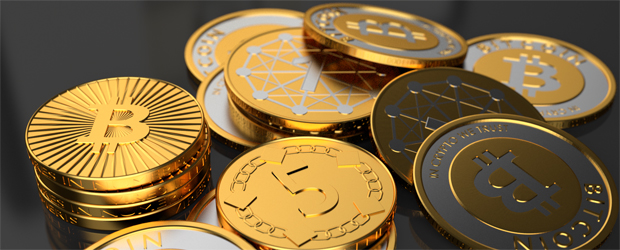
2017 is definitely the year of crypto, as the past 4 months have witnessed unprecedented growth of multiple coins’ markets. Bitcoin has recorded more than 70% price gains so far this year. Yet more, the altcoin market capital has exceeded $50 billion for the first time ever in 2017.
This prosperity in the cryptoeconomy acts as a magnet that attracts hackers who would try to steal some coins using one of the tricks in crypto’s black book. So, throughout this article, I will highlight some basic instructions to help you secure your coins.
Tip Number 1 - Avoid Online Wallets Whenever Possible:
It goes without saying that if you don’t own the private keys of your coins, then you don’t control your coins. That being said, I can never emphasize how secure it is to keep your coins on a desktop wallet on your machine. For bitcoin, the most secure way to save your coins is to download and install Bitcoin Core; download the full blockchain; encrypt your wallet and send your coins to one of the addresses of your wallet. No matter how secure Blockchain.info’s wallet might seem, it can be no more secure than your own desktop bitcoin core wallet. Note that blockchain.info doesn’t control your coins’ private keys.
You should do the same for altcoins too, keep your coins in a wallet on your machine to have control over your private keys.
If you have to use online wallets, never rely on passwords alone; use two-factor authentication as an added security measure. Also, use a randomly generated password and avoid meaningful words, as they can easily be cracked via dictionary attacks. Passwordsgenerator.net can help you generate random passwords with the length you choose; use at least 16 characters for your password.
Tip Number 2 - Don't Leave Your Coins In An Exchanges Wallet:
Many would use their exchange’s trading accounts as wallets for their altcoins. I don’t advise you to do this, as you won’t have control over your coins’ private keys this way and also, pay attention that periods of cryptoeconomy prosperity is when most exchanges are attacked by hackers, so you don’t want your coins to be confiscated in case the exchange is hacked.
Tip Number 3 - Use Cold Storage Whenever Possible:
Cold storage refers to the process of storage of bitcoin, or other cryptocurrencies, offline. By far, cold storage is unarguably the most secure way to store cryptcurrencies. If you want use cold storage to store your bitcoins, you have to download and install bitcoin core’s wallet on your machine, download the full blockchain, encrypt your wallet and then import your .dat wallet file, or your coins’ private keys, and use them for cold storage via USB drives, hardware wallets, paper wallets, physical coins….etc.
Tip Number 4 - Keep The E-mail You Used For Your Cryptocurrency Accounts Safe:
For maximum security, don’t share the email you used to create your blockchain.info’s wallet, or your cryptocurrency exchanges’ accounts, with anyone and don’t use them for creating accounts on any other websites. If a hacker knows the email you used to create you accounts, this would markedly make it easier for him/her to hack your accounts.
Thank you for the tips. I think the problem is that for a lot of people they don't know how to install a wallet, encrypt it, send to an adress etc. I don't know either. Maybe I would if i tried. I think the main problem for crypto is to make it easy for people to use. If we can get more of the 30-50 years old mom and dads, then this will boom. This generation grew up with bitcoin, so don't worry about them :) Thanks for the post.
Downvoting a post can decrease pending rewards and make it less visible. Common reasons:
Submit
meep
Downvoting a post can decrease pending rewards and make it less visible. Common reasons:
Submit